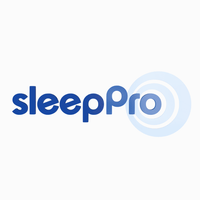To find out which check the short questionnaire at the end of this article.
Many people still treat snoring as a joke or something to be embarrassed about, but loud snoring, especially when accompanied by daytime fatigue may be a sign of Sleep Apnea, a common disorder in which breathing repeatedly stops and starts as you sleep. Sleep Apnea can leave you feeling exhausted during the day, affect your mood and your relationship with your bed partner, and even be dangerous to your health.

Obstructive Sleep Apnea is a serious sleep disorder where your breathing is interrupted during sleep – sometimes hundreds of times during the night. This means the brain and the rest of the body may not get enough oxygen and makes it a potentially fatal condition.
Because Sleep Apnea only occurs while you’re sleeping, many people aren’t aware they have a problem until a bed partner or roommate complains about their heavy snoring, which is one of the major indicators.
Anyone is susceptible to Sleep Apnea, men more so than women, and it even occurs in children. You may not know if you or your partner have Sleep Apnea but there is simple way to find out. Obviously one can go for expensive sleep tests, but these also involve going through the right medical channels and being away overnight for a detailed assessment to be done, or you can check quickly with the test before you do that. In most cases simply using an oral appliance will both limit and even prevent it happening. These do not require a prescription and are available easily online, are medically recommended, and made to fit your own dental profile.
What is Sleep Apnea?
Obstructive Sleep Apnea (OSA) is a chronic condition in which there are repeated blockages in the throat causing pauses in breathing. If there are more than five of these events per hour of sleep, each event lasting 10 seconds or longer, a patient is diagnosed with OSA. Some patients have events every minute during sleep; some have events lasting 60 seconds or longer and most of these patients are unaware of this deadly condition.
A typical Sleep Apnea episode will see your airflow stop, and as a result, the oxygen level in your blood drop. Your brain responds by briefly disturbing your sleep enough to kick start breathing, which often resumes with a gasp or a choking sound. If you have obstructive Sleep Apnea, you probably won’t remember these awakenings. Most of the time, you’ll stir just enough to tighten your throat muscles and open your windpipe.
How to check if you may have Sleep Apnea
Here is a quick assessment to determine your predisposition for Sleep Apnea. It is called the STOP-BANG Sleep Apnea Questionnaire.
STOP (Snore, Tired, Observed, Pressure)
Do you SNORE loudly?
Do you often feel TIRED, fatigued or sleepy during the day?
Has anyone OBSERVED you stop breathing during your sleep?
Do you have or are you being treated for high blood PRESSURE?
BANG (Body Mass Index, Age, Neck, Gender)
Are you obese or very overweight with a BMI over 35?
Are you 50 years of AGE or older?
Is your NECK circumference greater than 16 inches?
GENDER: Are you a male?
SCORE:
If you say YES to 2 questions or less: There is a risk of mild Sleep Apnea –
If you say YES to 3-4 questions: There is a risk of moderate Sleep Apnea
If you say YES to 5-8 questions: There is a risk of severe Sleep Apnea
Oral appliances, which are available without prescription online, are recommended for both mild and moderate Sleep Apnea, but in severe cases you should be advised by your Doctor as to the best course of action.
----
To see Sleep Apnea in action watch this video by Nucleus Medical Media


